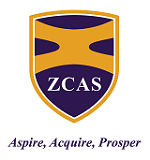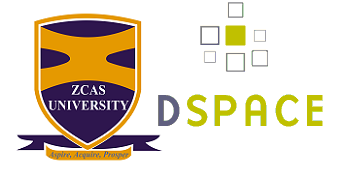Please use this identifier to cite or link to this item:
http://41.63.8.17:80/jspui/handle/123456789/87Full metadata record
| DC Field | Value | Language |
|---|---|---|
| dc.contributor.author | Zulu, Velenasi | - |
| dc.date.accessioned | 2020-09-08T14:11:15Z | - |
| dc.date.available | 2020-09-08T14:11:15Z | - |
| dc.date.issued | 2020 | - |
| dc.identifier.issn | 3471-7102 | - |
| dc.identifier.uri | http://41.63.8.17:80/jspui/handle/123456789/87 | - |
| dc.description.abstract | The business of providing training has become highly competitive in Zambia to an extent that, if not well strategized, ‘Big names’ institutions may find themselves becoming ‘white elephants’ with their structures. The purpose of this study is to investigate the effects of TQM practices on the clients’ satisfaction and hence retention at ZCAS University. ZCAS as a University has a Quality Assurance policy from which it draws all its quality initiatives. These initially are drawn from the Higher Education Authority guidelines on what constitute quality in education provision. These guidelines include: Vision, Mission and Strategy, Governance and Management; Clearly defined Academic Programs; Teaching and Learning support systems; Staffing and Training; Adequate physical infrastructure for its operations etc. This paper uses the methodology of both primary and secondary data to examine the relationships between TQM practices variables to the customer satisfaction variable. The study sample consisted of 100 students and employees selected at random, using simple random sampling of which only 80 were able to return the questionnaires. Additionally, some students were interviewed on certain areas related to quality matters and observations were made of certain observable behavior and attitude of employees that border on quality matters. The number of students who returned the questionnaires was less probably because the survey was done during the time when most students were preparing for their exams. This gives a response rate of 80%. A combination of data collection instruments as stated was used so as to increase amount of areas related to quality surveyed. Data were analysed using IBM SPSS version 20 employing frequencies, correlations, percentages etc. Microsoft excel was equally used in selected circumstances in data analysis. Quality at ZCAS University are observed in a number of areas including health facilities, availability of learning and teaching materials, lectures’ preparedness, and teaching and learning assessments. It was established that management at ZCAS are committed to enhancing and maintaining quality of service provision to its clients as a number of TQM practices are in place and closely monitored and frequently reviewed by a quality manager who is responsible for the task. This, as shown by the research results unreservedly gives students motivation to continue pursuing their studies at ZCAS University. Particularly employees and students are of the view that quality practices are generally very good. This study has the value of enabling top management to continue promoting quality practices and improve in areas indicated for weak practices so as to use quality for competitive advantage as a university. | en_US |
| dc.language.iso | en_US | en_US |
| dc.publisher | The International Journal of Multi-Disciplinary Research | en_US |
| dc.subject | Competitive advantage | en_US |
| dc.subject | Total Quality Management | en_US |
| dc.subject | ZCAS University | en_US |
| dc.subject | Customer satisfaction | en_US |
| dc.subject | Quality Assurance | en_US |
| dc.title | The Effect of Total Quality Management Practices on Customer Retention– A Case Study of ZCAS University | en_US |
| dc.type | Article | en_US |
| Appears in Collections: | Research Papers and Journal Articles | |
Files in This Item:
| File | Description | Size | Format | |
|---|---|---|---|---|
| CFP14332019 VELANASI (002).pdf | 698.6 kB | Adobe PDF | View/Open |
Items in DSpace are protected by copyright, with all rights reserved, unless otherwise indicated.




